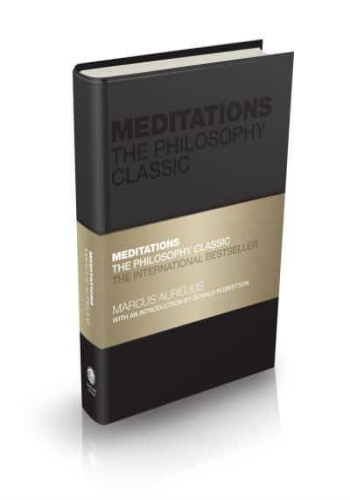A deluxe special edition of the ancient classic written by the Roman Emperor known as "The Philosopher"
Meditations is a series of personal journals written by Marcus Aurelius, Emperor of Rome from 169 to 180 AD. The last of the "Five Good Emperors," he was the most powerful and influential man in the Western world at the time. Marcus was one of the leaders of Stoicism, a philosophy of personal ethics which sought resilience and virtue through personal action and responsibility. Stoicism, viewed as a foundation of modern self-help, has inspired many personal development and psychotherapy approaches through to the present day.
Meditations is perhaps the most important source of our modern understanding of Stoic philosophy. Its twelve books chronicle different stages of Marcus Aurelius' life and ideas. Although he ruled during the Pax Romana, the age of relative peace and stability throughout the empire, his reign was marked by near-constant military conflict and a devastating plague which killed upwards of five million people. Aurelius' writings give modern readers an unprecedented look into the "spiritual exercises" which helped him through his tumultuous life and strengthened his patience, empathy, generosity, self-knowledge and emotional health. The private reflections recorded in the Meditations were never meant to be published, rather they were a source for Marcus' own guidance and self-improvement, and jotted down by campfires or in military tents on the Roman front. The lessons, insights and perspectives contained within this remarkable work are just as relevant today as they were two millennia ago. This volume:
- Presents the timeless wisdom of Emperor Marcus Aurelius and his Stoic philosophy, with new research on his life and times
- Contains valuable insights on topics such as resilience, moderation and emotional control
- Discusses how to live "in agreement with nature" and abide by strong ethical principles
Part of the bestselling Capstone Classics Series edited by Tom Butler-Bowdon, this attractive, high-quality hardcover volume includes:
- An original Introduction by Marcus Aurelius authority and Stoicism expert Donald Robertson, author of How To Think Like A Roman Emperor.
- A modernised, up to date version of the classic George Long translation.
Meditations: The Philosophy Classic is a volume which will occupy a prominent place in any library for years to come.







